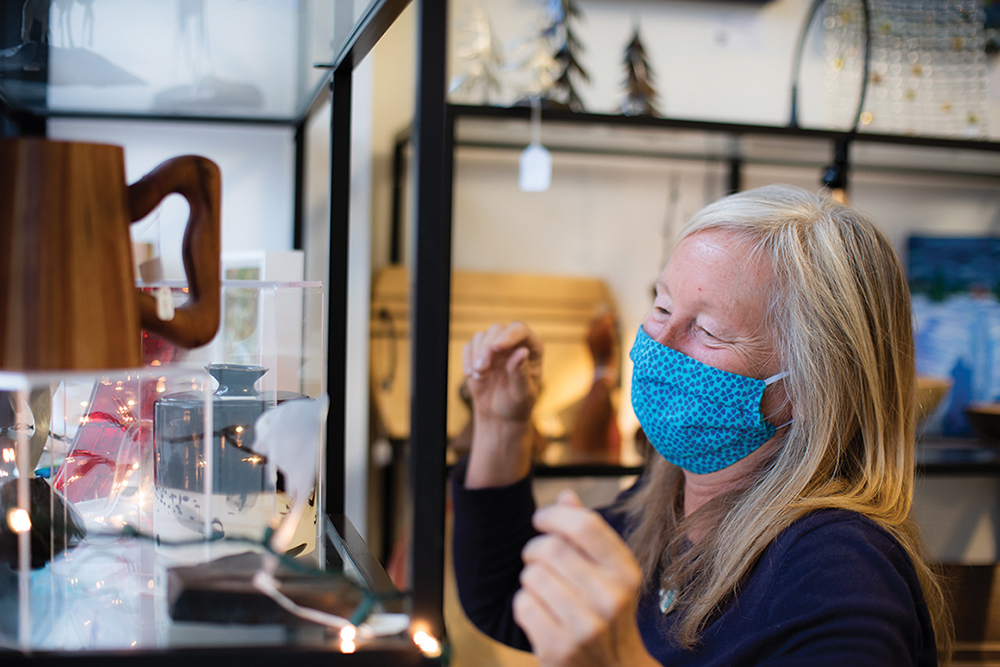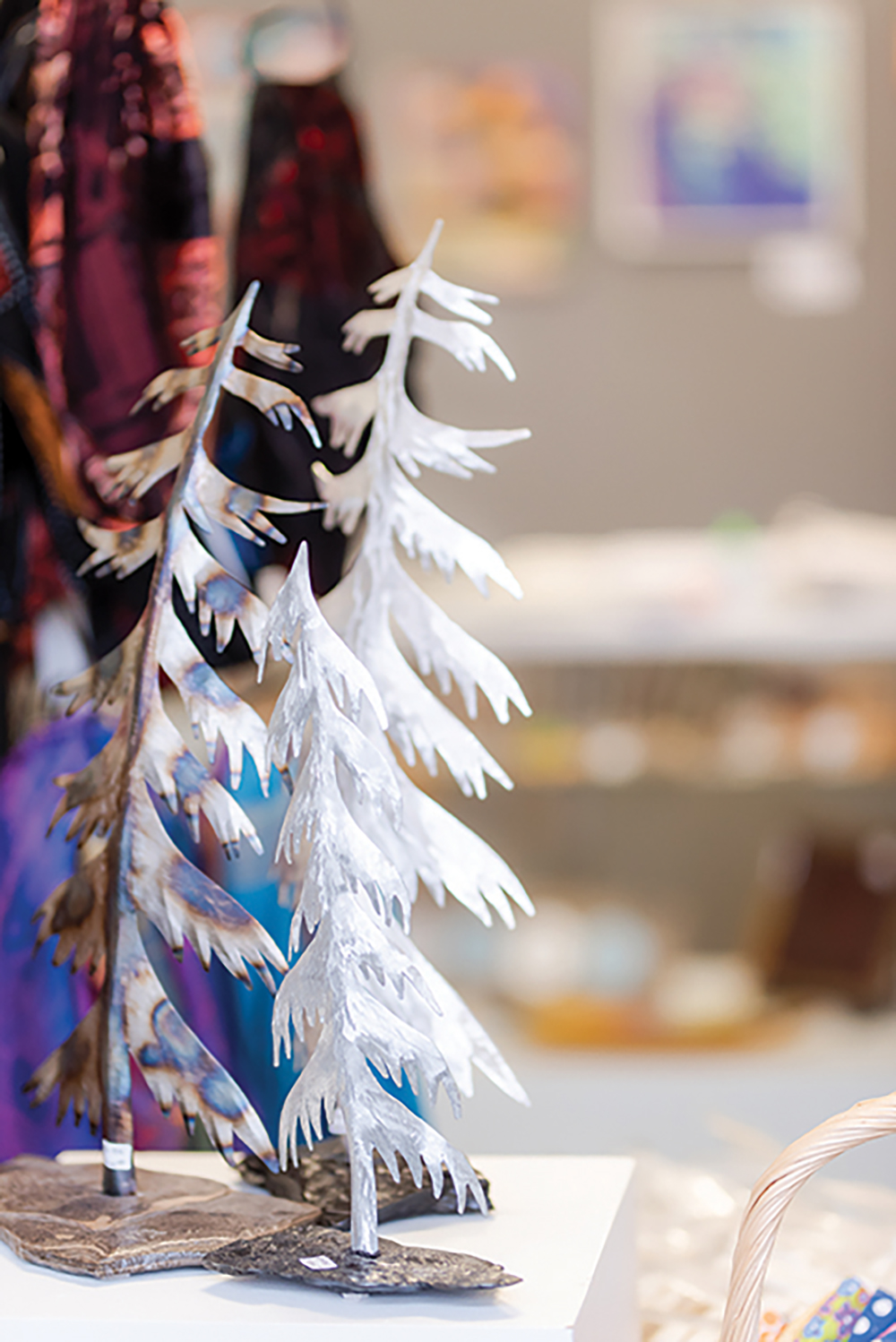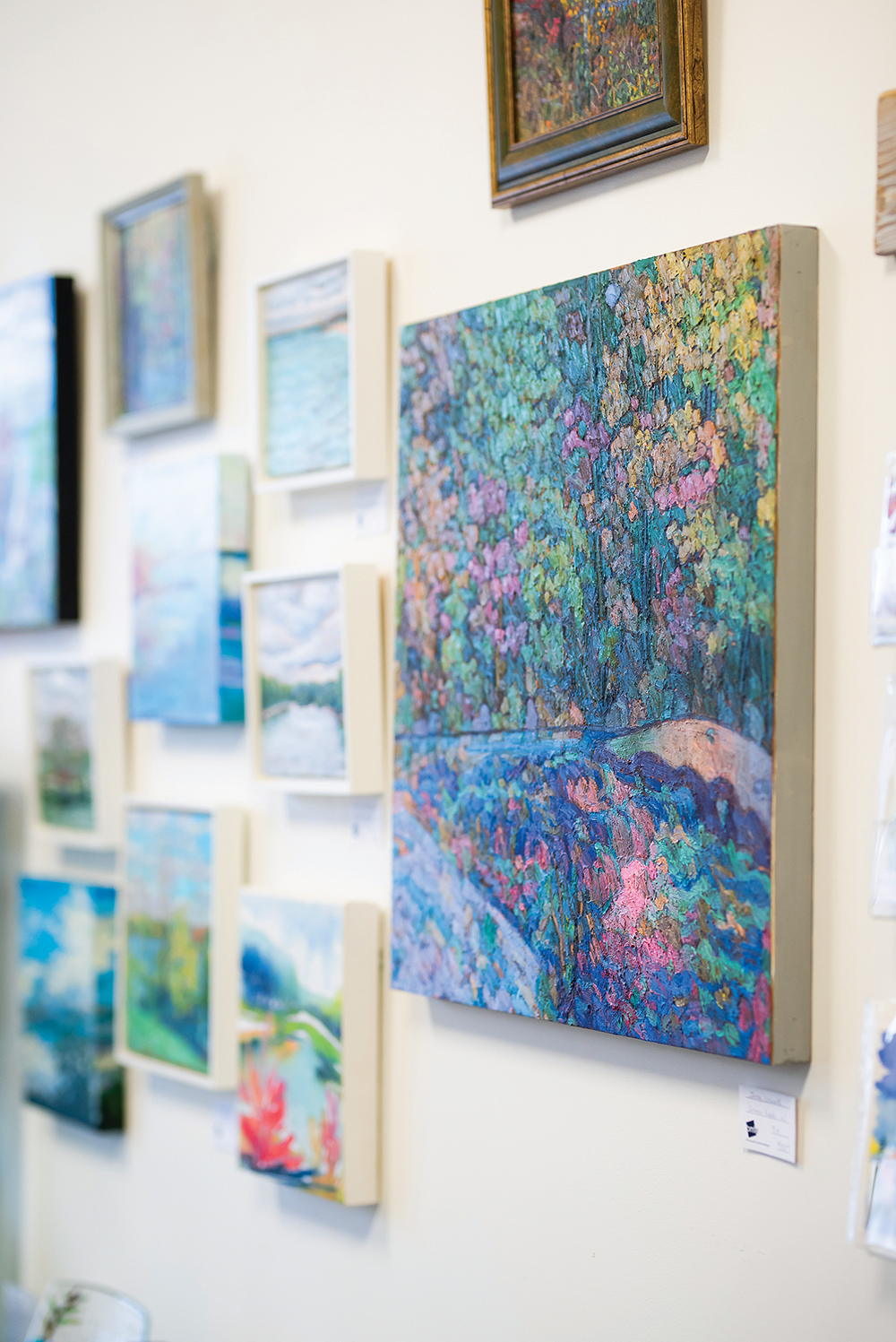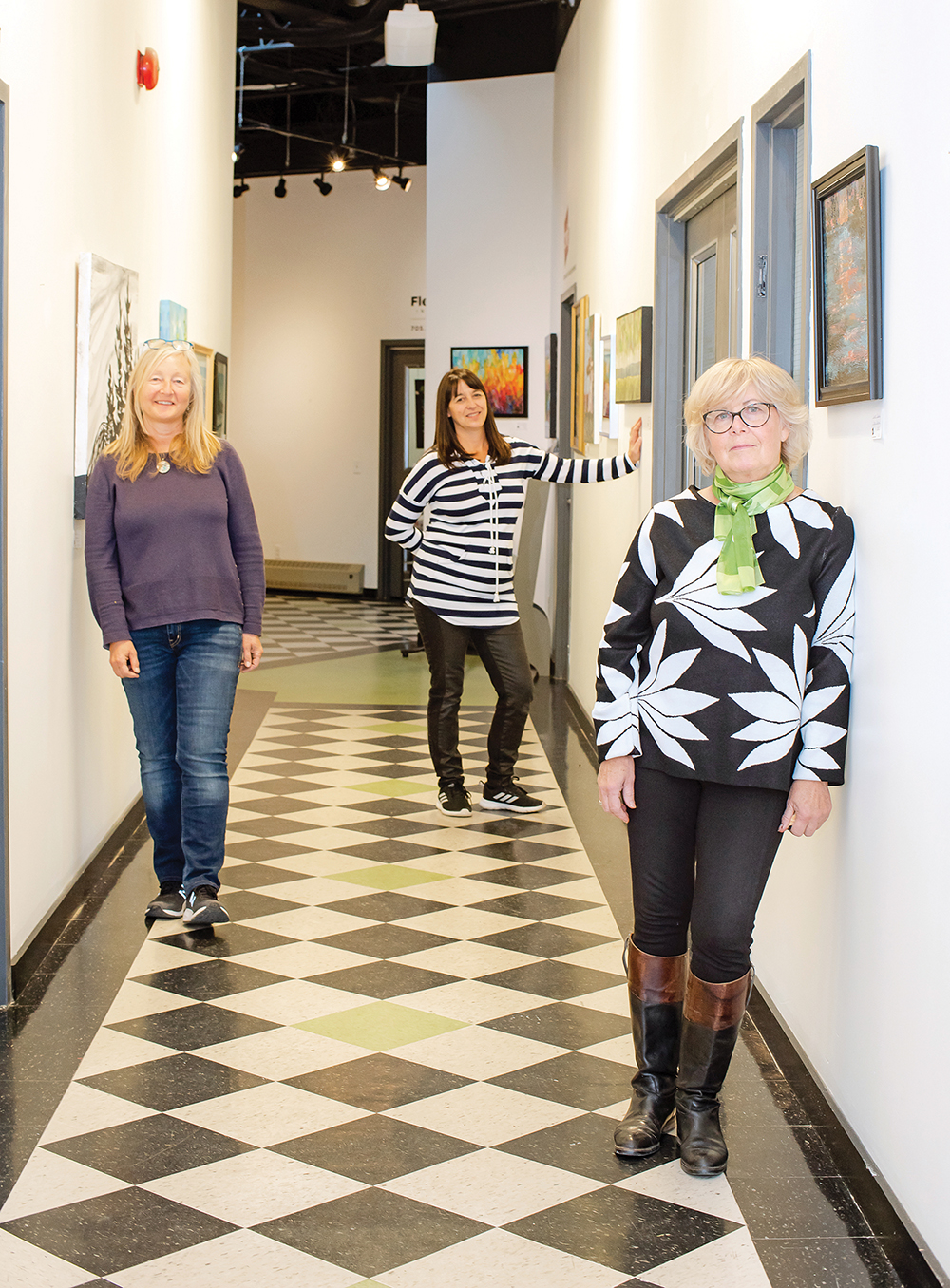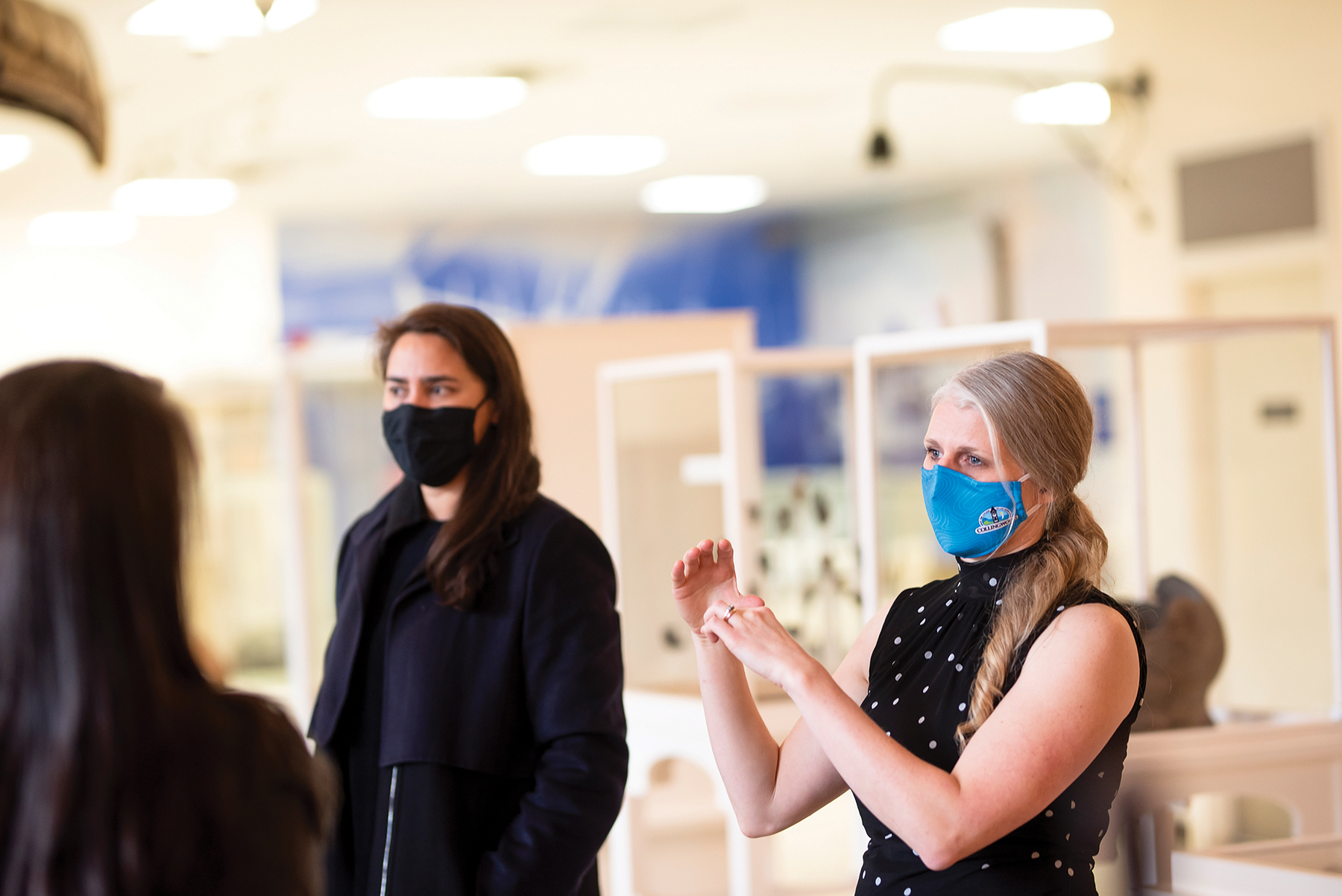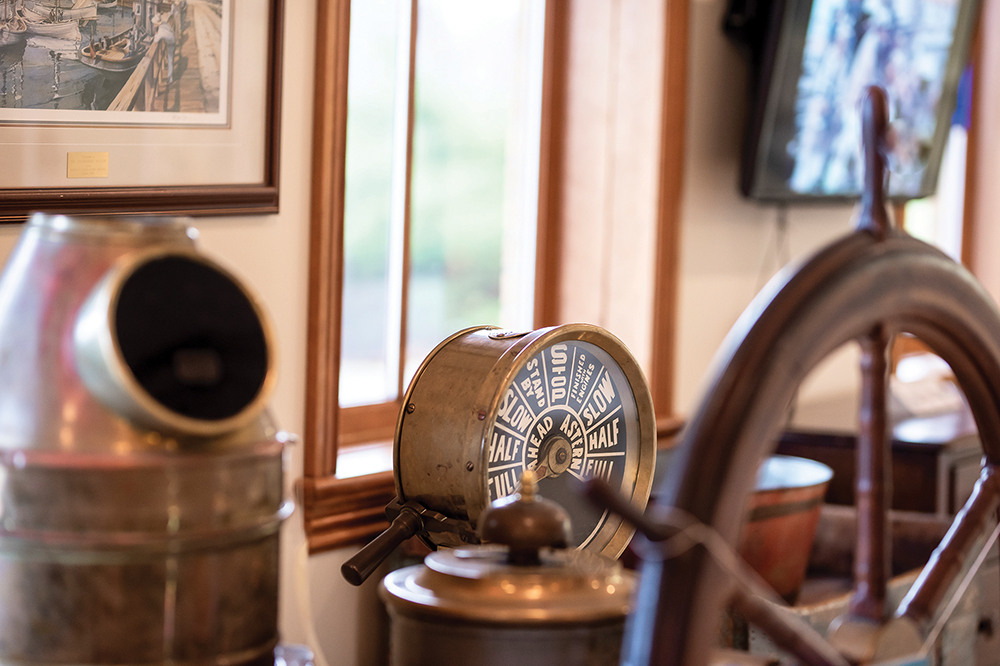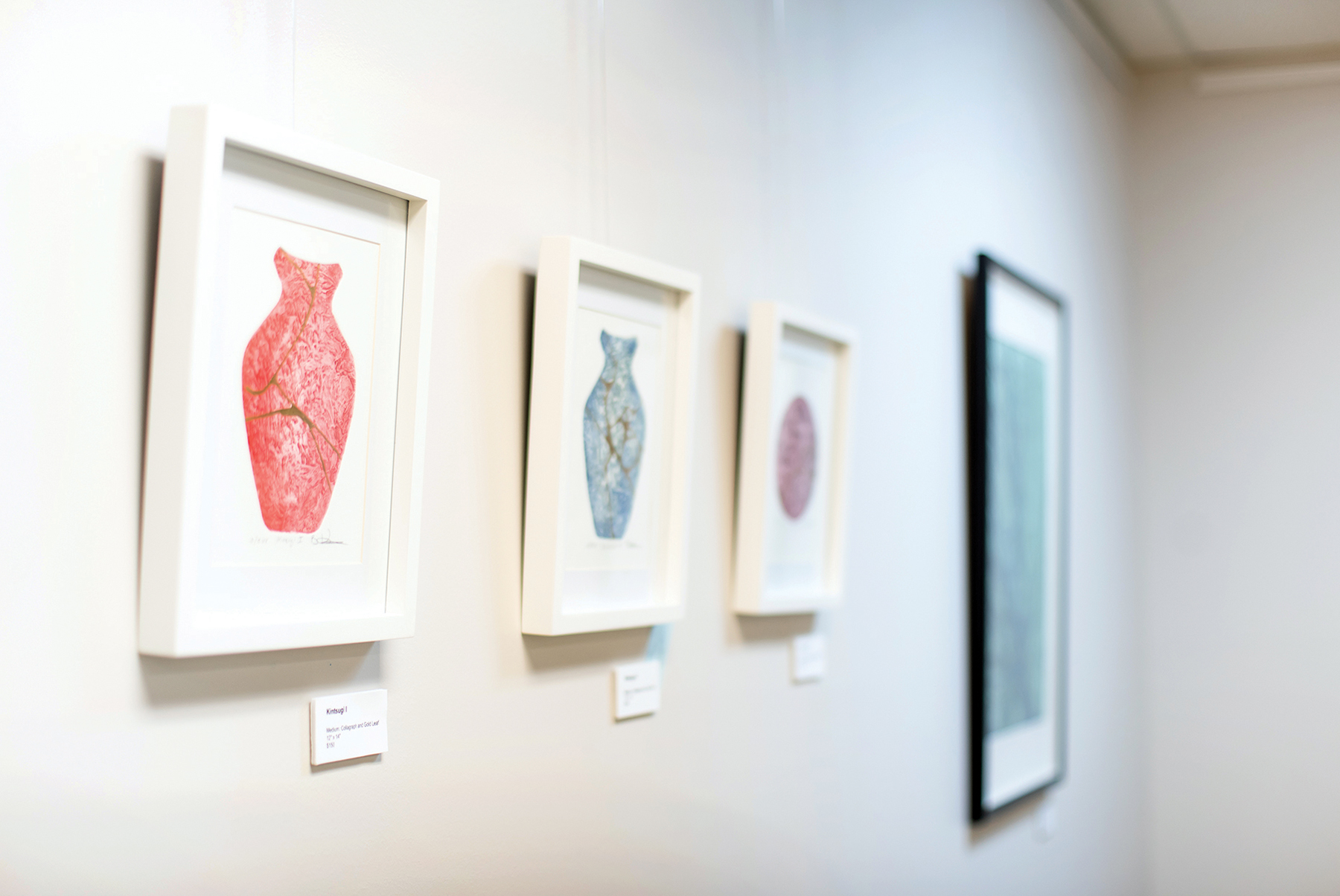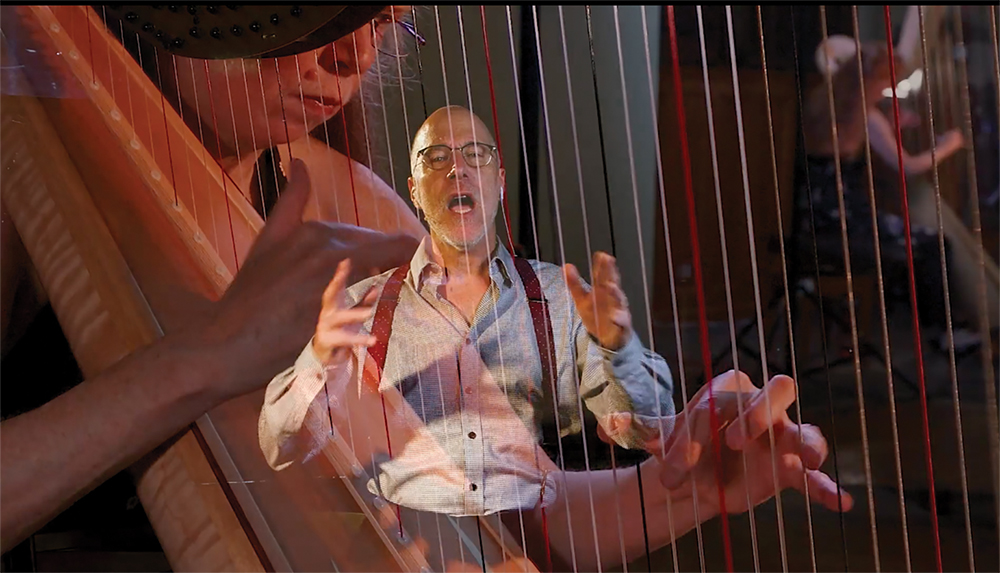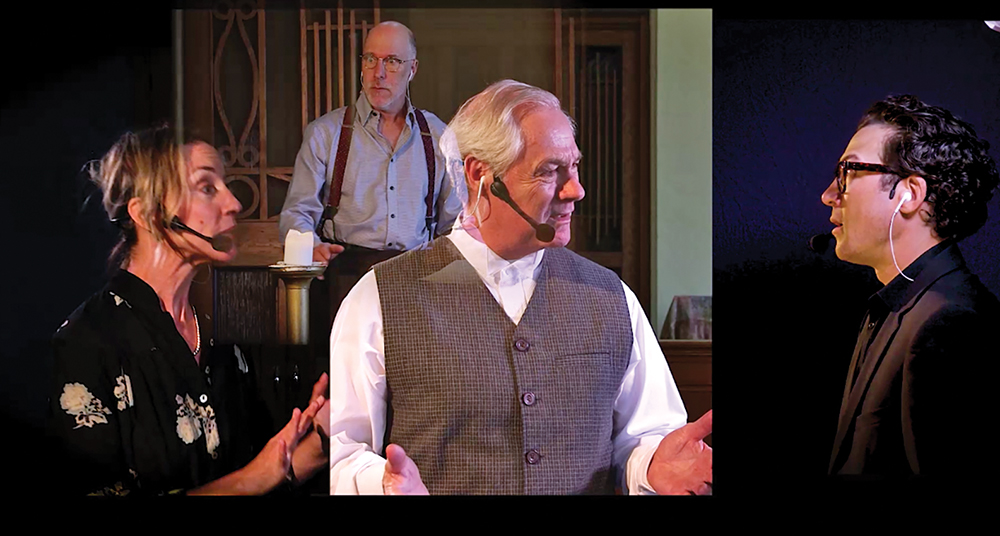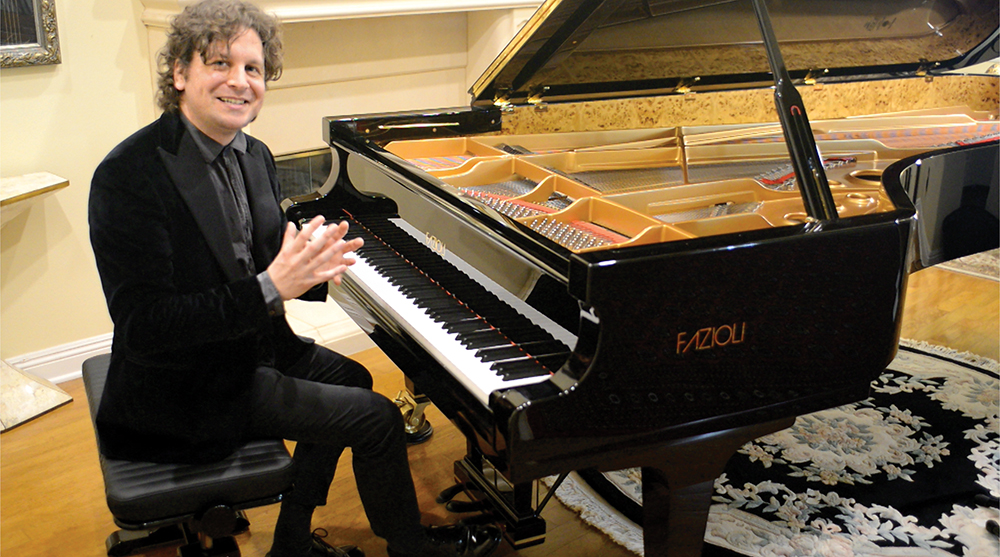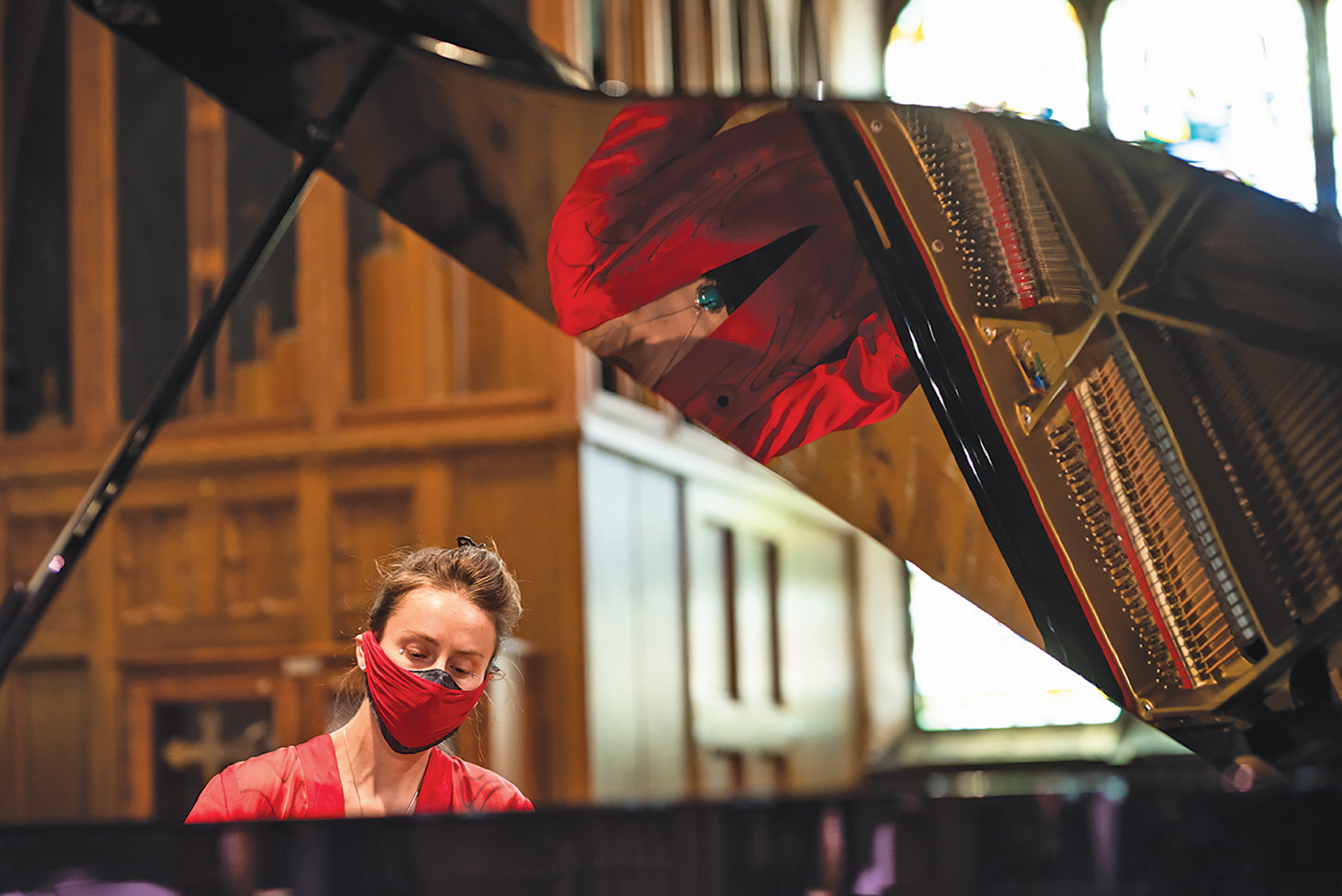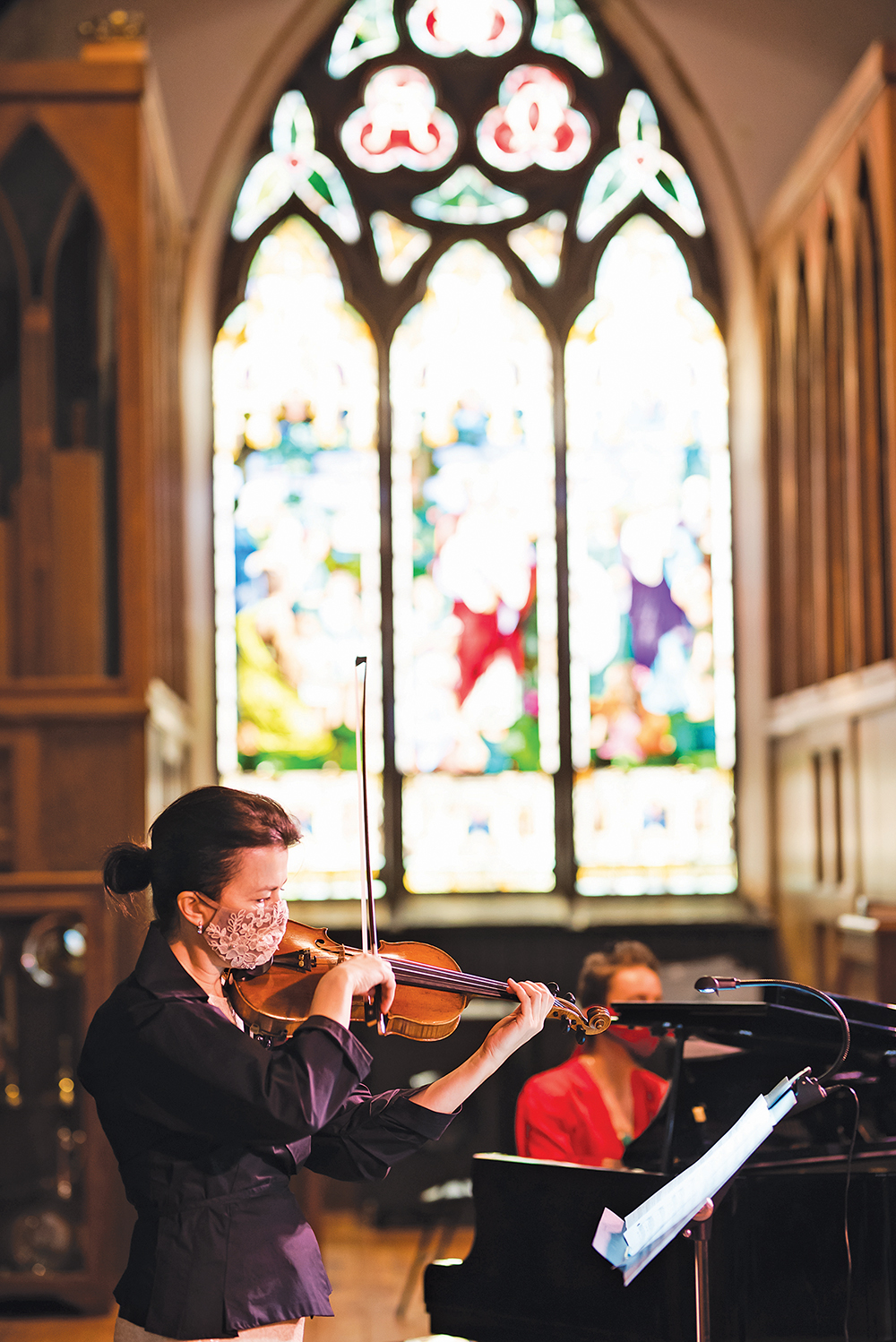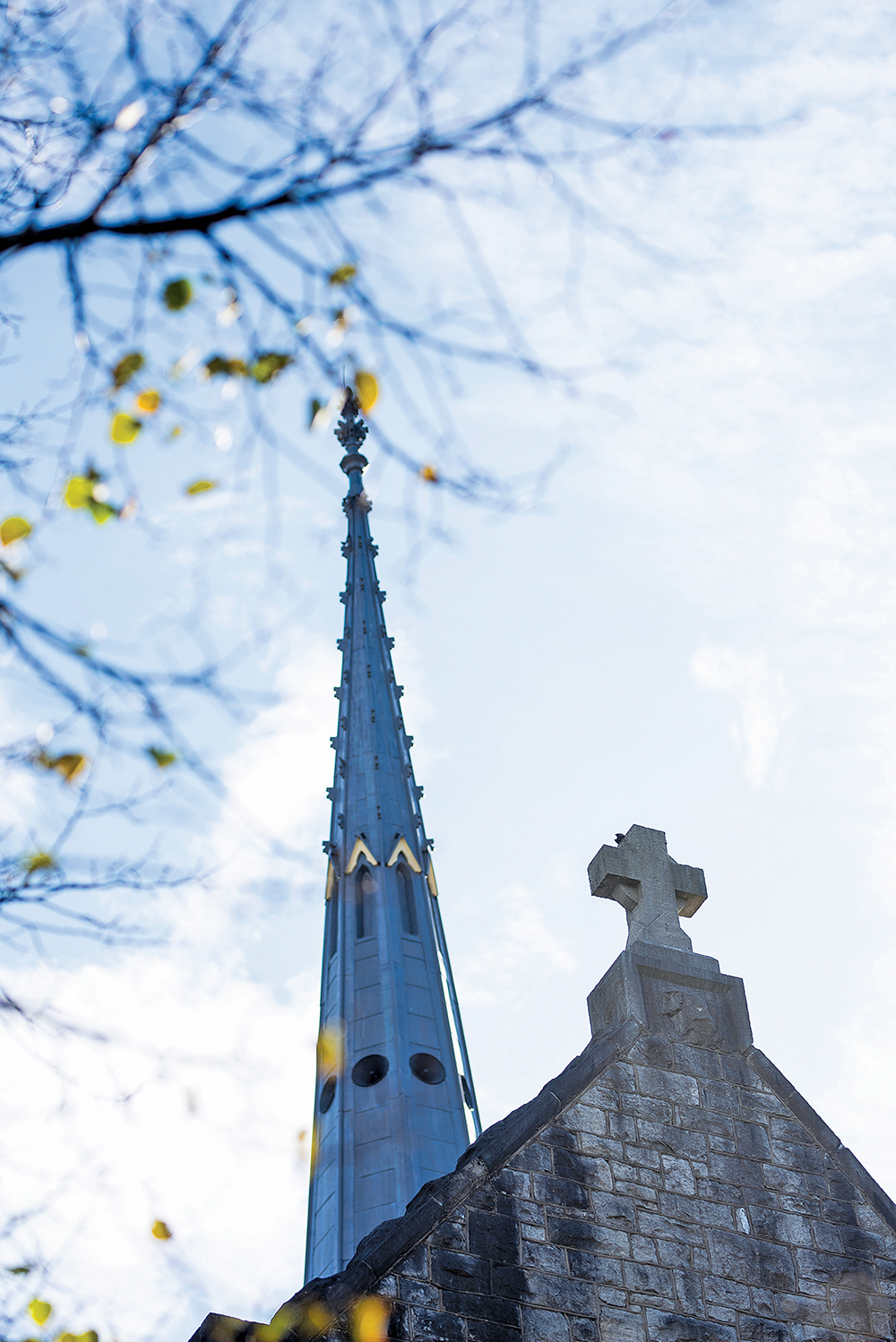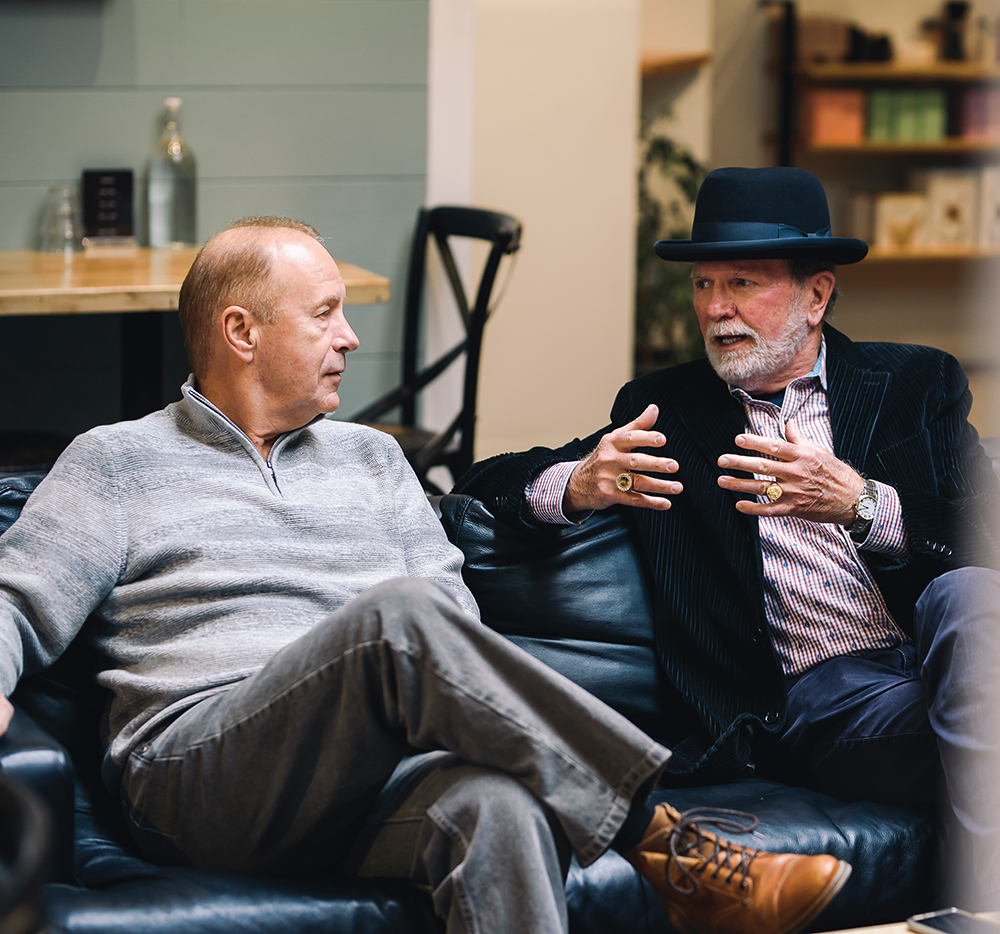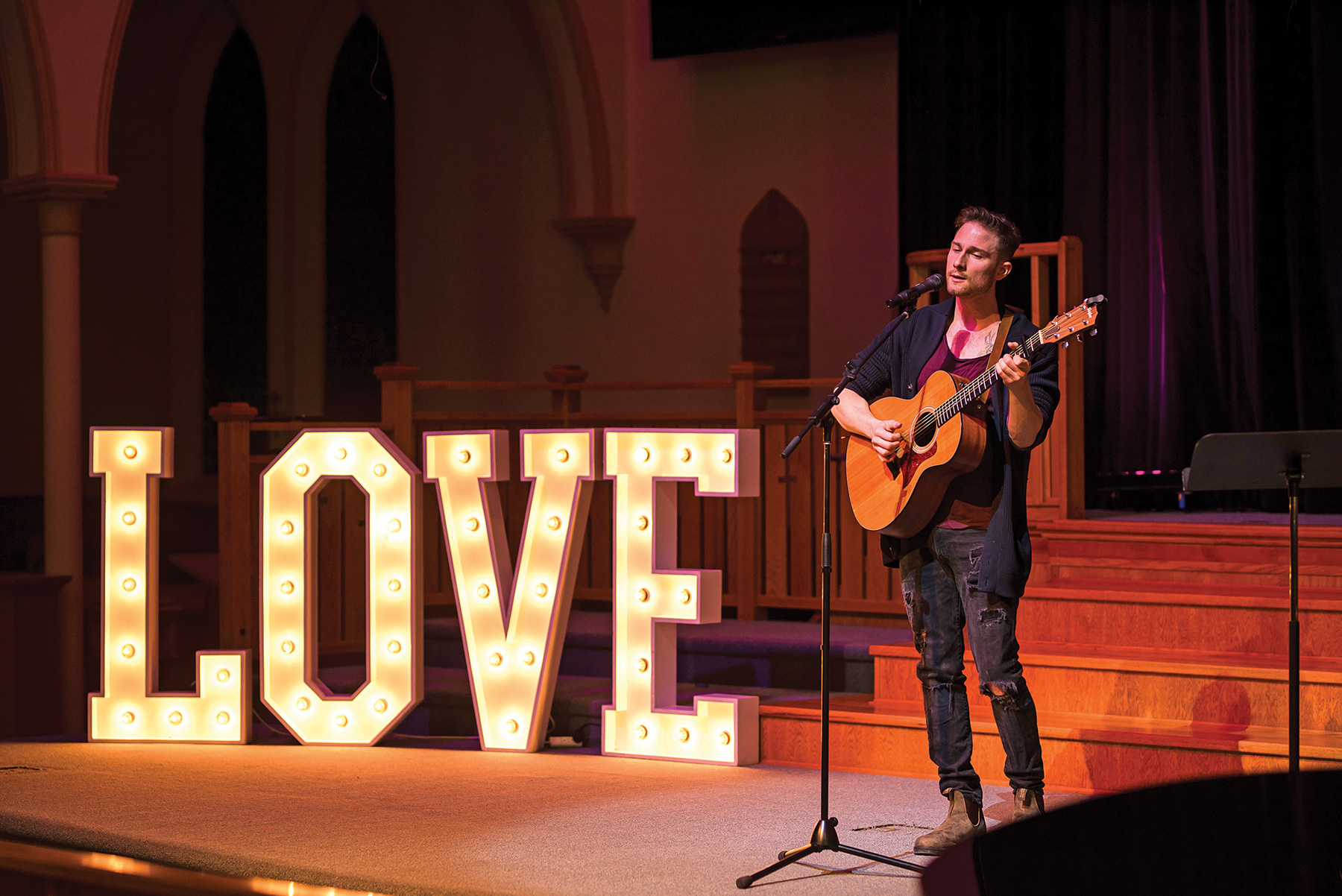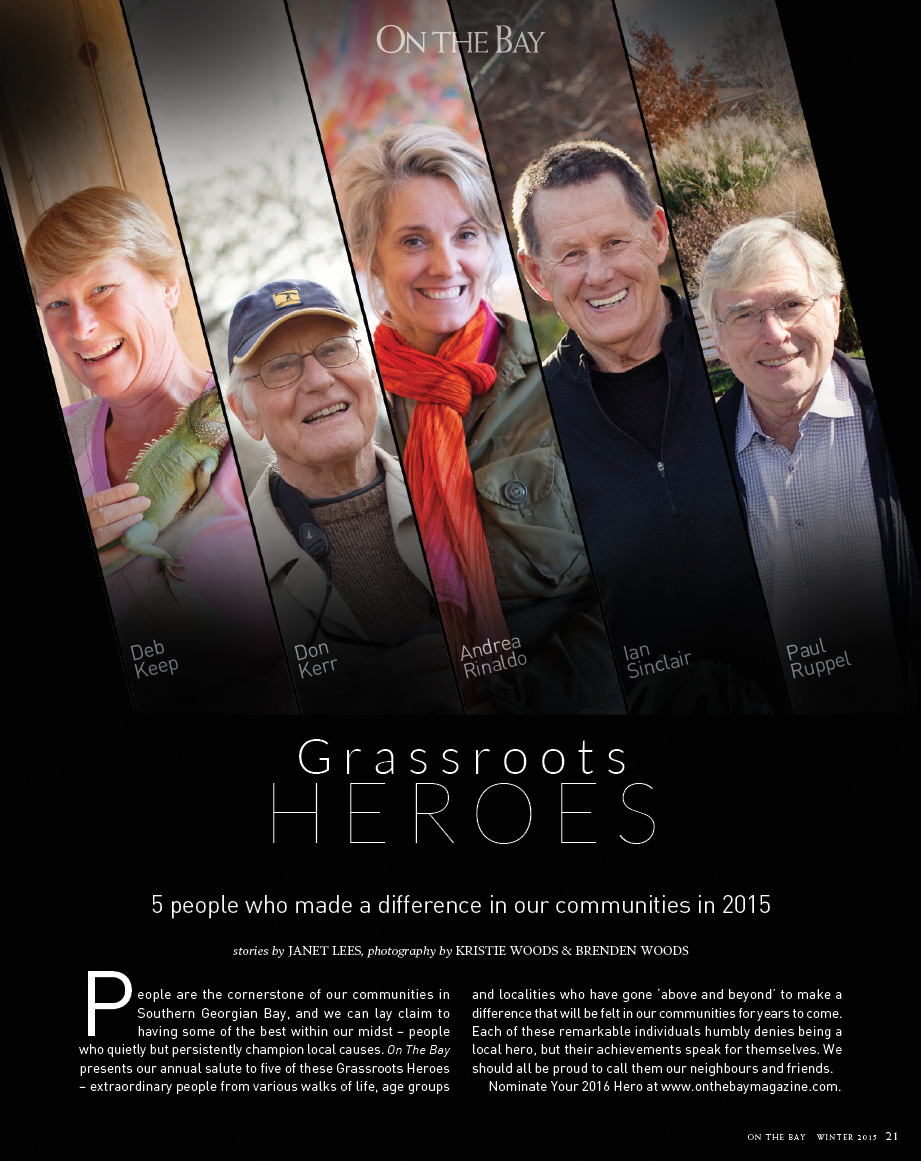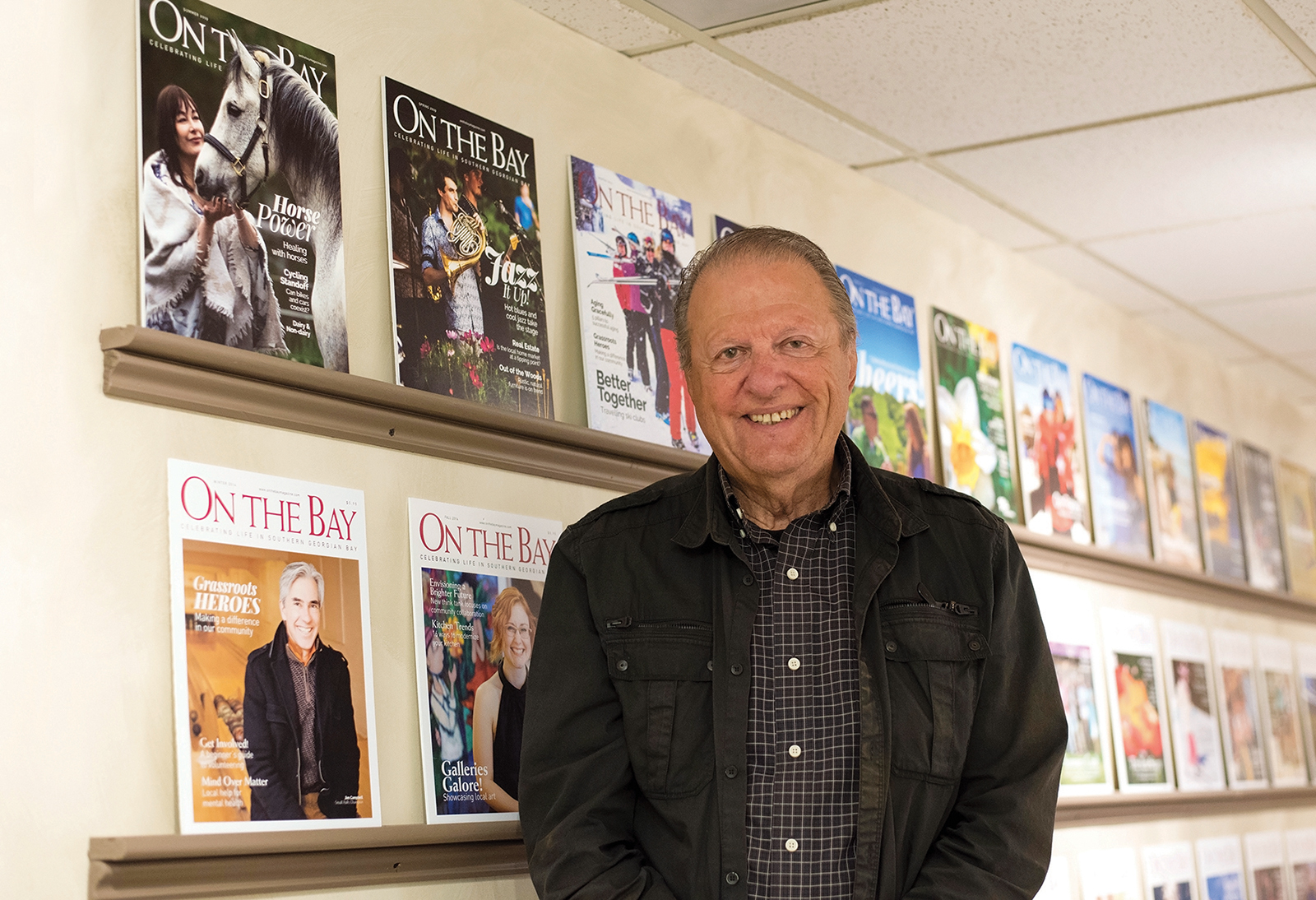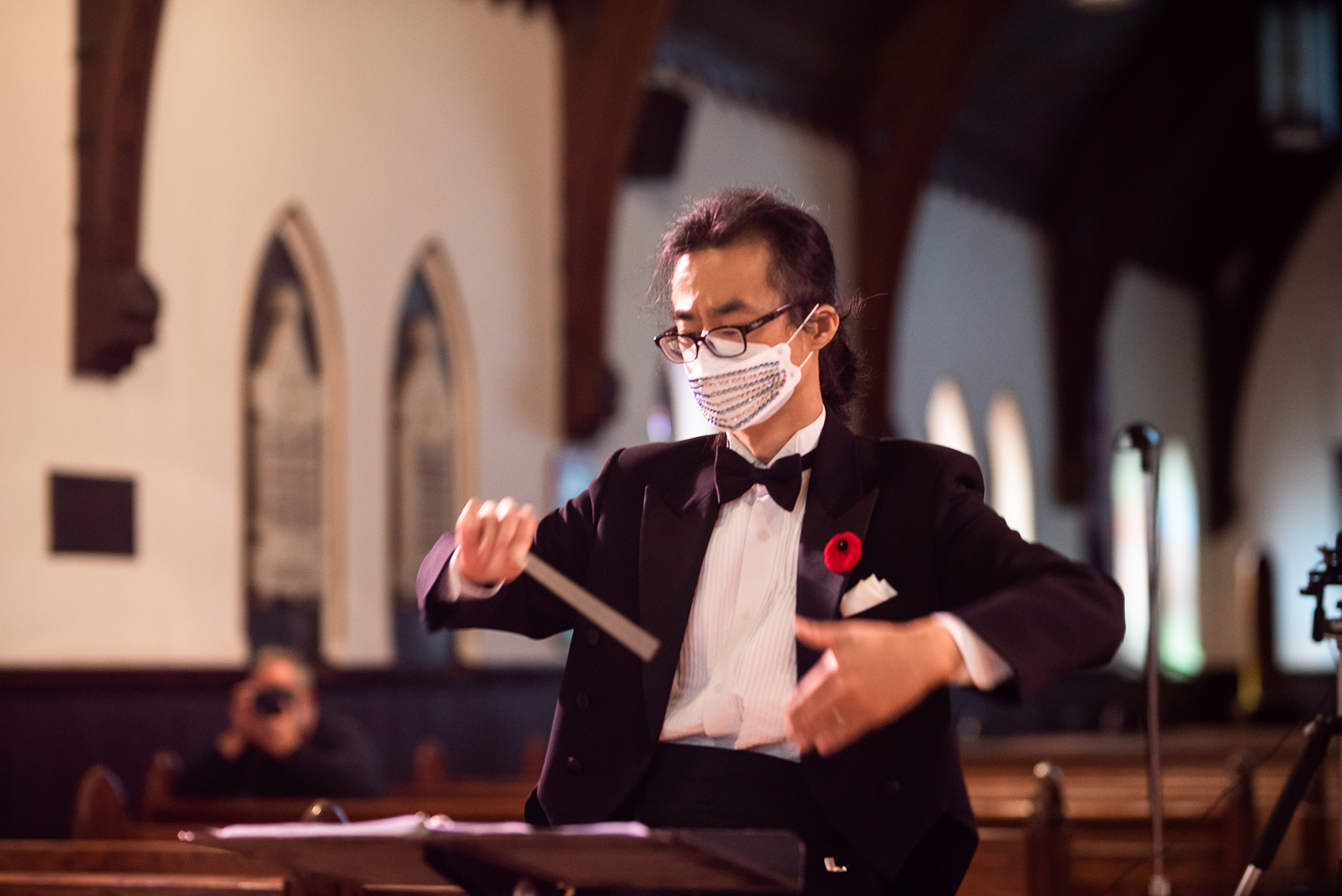
Arts & culture organizations are pivoting in the face of COVID-19 restrictions to stay relevant … and survive
by Marc Huminilowycz
photography by Jessica Crandlemire
When COVID-19 hit, artistic and cultural organizations were among the first, and arguably the most severely, impacted. Galleries, theatres and live music venues closed. Live performances were first prohibited, then severely restricted in terms of audience size, making it impossible for many organizations to sell enough tickets to viably hold live events.
As the pandemic rages on – and at press time, the increasing numbers were again forcing us into greater restrictions, possibly heading towards another lockdown – local arts organizations continue to struggle.
Some are offering virtual performances while others are planning outdoor events with distancing and even “pods” to protect patrons. But it’s unclear how long many organizations can hold on.
“COVID-19 restrictions impacted us tremendously,” says Susan Cook, administrator of the Blue Mountain Foundation for the Arts (BMFA). “Gone are the days of people wandering around freely in galleries, artists coming together, receptions, critiques and award ceremonies. We see no full exhibits for the foreseeable future. Now, it’s pivot, pivot, pivot.”
Like other arts groups during COVID lockdown, the BMFA needed to act quickly to move entire art exhibits online, create an e-commerce presence, and be active on social media, in order to keep patrons engaged and buying local original art. “It’s been a challenge with our limited staff, and we question if the viewing public is willing to accept virtual representations of art. Some are not tech savvy, and some of our artists are not willing to exhibit virtual versions of the work.”
At press time, the BMFA’s storefront studio at 65 Simcoe Street in Collingwood was open (thanks in large part, says Cook, to the kindness and support of landlords Rick and Anke Lex), but with reduced hours. Last summer’s successful Saturday street closure in downtown Collingwood was a big boost to the studios, artists and other businesses, creating a relaxed shopping atmosphere.
The BMFA and other Collingwood businesses are hopeful that the Saturday street closure will continue next summer, and they’re making plans accordingly. In the meantime, Cook encourages people to support her organization by becoming a member, joining the board, buying art on the BMFA website, and submitting their suggestions for engaging the community.
Another local cultural institution, the Collingwood Museum, was forced to close due to COVID-19 restrictions from March 13 to September 9. Only curbside pickup of gift shop items was available to the public. Now open with safety protocols in place, visitors must pre-book an appointment for a group self-guided tour (up to 10 people), with only one group at a time allowed. Interactive/hands-on exhibits are off limits and visitors are prohibited from touching any items in the static exhibits.
Museum supervisor Melissa Shaw says the lockdown gave staff the opportunity to work on administration tasks, data management, online content, and social media. “Since our shutdown, we have been busy with online and social activities, doing as much as we can virtually,” she says. “During our ‘Collecting for Collingwood: COVID-19’ campaign, we asked people to give us their COVID stories, photos and comments. We supplied content for Collingwood Parks and Recreation’s ‘Rally Point’ virtual initiative, as well as digital puzzles, scavenger hunt clues and heritage videos for another virtual event, ‘Camp Collingwood’.”
The Collingwood Museum is currently working on a new live exhibit titled ‘Launch Day,’ where the community comes together to launch a ship. “As the third phase of modernizing the museum, it’s an exciting exhibit that will enliven our gallery,” Shaw explains. “Other than this, what do we foresee in 2021? Right now, it’s difficult to predict anything. We’re hoping to offer children’s programs and hire students on-site next summer. And we’re grateful for the funding we’re receiving from federal, provincial and municipal sources.”
COVID-19 hit shortly after a new arts organization in our region, Wasaga Society for the Arts (WSA), was getting ready to launch. It bills itself as a charitable organization created to raise awareness of the arts scene and support local artists, artisans and musicians in Wasaga Beach.
“In the past 20 years, the population growth in Wasaga Beach has been quite outstanding, surpassing Collingwood,” said WSA administrator Michael Jarrett. “It’s telling us that people are moving here, and they will be clamouring for lifestyle choices, including opportunities for careers in music, art, film, as well as opportunities in the arts for their children. We’re building an organization that can generate a local creative economy, engaging artists and like-minded people to socialize, share and learn their craft.”
According to chair Steve Wallace, COVID-19 gave the WSA time to organize, plan, develop governance and revamp its website. “It’s a pause that has allowed us to connect with people, start conversations, network and build our membership,” he says. “We’re continually searching for and offering online learning opportunities, such as hosting an art initiative and a competition for children, asking for entries of artistic representations of their feelings about COVID.
In August, the WSA opened its public art venue, Stonebridge Art Gallery, located in the Stonebridge Town Centre and curated by local artist Sue Miller. It is currently open to the public on Thursdays and Saturdays. The gallery has featured works by local original printmaker and painter Barbara Kendrick, as well as exhibits of paintings and sculptures by local artists. The WSA is asking residents who are passionate about the arts to join the organization as members and patrons.

“What do we foresee in 2021? Right now, it’s difficult to predict anything. We’re hoping to offer children’s programs and hire students on-site next summer. And we’re grateful for the funding we’re receiving from federal, provincial and municipal sources.”
Melissa Shaw, Collingwood Museum
Live theatre organizations and venues in our region were dealt a severe blow when the pandemic forced their closure.
“When the COVID lockdowns hit, we soon realized that nobody was buying tickets. With $350,000 a year in expenses to pay artists and overhead costs, and no money coming in, it was a terrifying scenario,” recalls Erica Angus, executive director of Theatre Collingwood, a mainstay of live theatre for 36 years.
“We quickly looked for a less expensive office space, and found one for half the cost,” Angus adds. “The government wage subsidy helped us, and our staff sold off office items to raise funds. At the same time, we looked at ways to stay connected and relevant to the community. Through our newsletter, we asked people how COVID was affecting them. The response was tremendous.”
In August, Theatre Collingwood staged an outdoor wine, food and art event at Georgian Hills Vineyards based on the Stephen Sondheim play, “Sunday in the Park with George,” which saw 50 people enjoying wine and food pairings, live music by local performer Aaron Solomon, and on-site painting by local artist John Burton. “It was a wonderful afternoon, and we realized that this works,” Angus enthuses.
Previous to that event, the theatre staged a ‘Porch-side Series’ where musicians entertained people outside seated on lawn chairs. In the fall, the theatre staged a virtual production of a play by CBC Radio personality Tom Allen titled, “The Missing Pages” and two Christmas-themed online events were planned for December: a staged reading of Dickens’ “A Christmas Carol” and a musical performance called “Rockin’ Round The Christmas Tree,” featuring Leisa Way and the Wayward Wind Band.
“If there was anything positive from COVID, it was a gift of time that motivated us to think outside the box and ask ourselves how we can be creative to serve the community and support local artists,” says Angus.
“We’re working on more live streaming events and a Porch-side Festival next summer. In the meantime, we’re asking our patrons to convert their subscriptions to donations. I think it’s important for people to support their bodies and their mental health during the pandemic. Theatre Collingwood plays a vital role in helping people to be happy. We’ve been around for 36 years, and we’re not going to let a pandemic stop us!”
In March, The Marsh Street Centre in Clarksburg was all set to host a St. Patrick’s Day fundraising event featuring a popular Celtic-folk/pop band from Kingston, Ontario. Following The Town of The Blue Mountains’ lead, the venue immediately shut its doors. Suddenly, staff needed to be laid off and expenditures minimized.
“Fortunately, The Marsh has always been well-managed financially, so we had no debt and we were able to cut our expenditures to a bare minimum to keep the lights on and pay the bills for a matter of months,” says president and board chair Steven Gorton. “Sure, COVID forced us to put on the brakes on many things. We used that four-month time period when we were closed to review and improve our internal systems and processes, renovate our bar and stage front, and stay close to our bands and members through newsletters and streaming a few online concerts.”
As soon as COVID restrictions began to ease, the Marsh Street Centre teamed up with The Blue Mountains to hold two major fundraisers – Lobsterfest and Oktoberfest – which helped to raise over $10,000 for the venue. On September 12, The Marsh held its successful annual general meeting – hosting, thanks to an Ontario Arts Council grant – renowned guitarist Robert Michaels with his band and flamenco dancers.
At press time, with restrictions limiting indoor gatherings to 10 people, the Marsh Street Centre was open for business, renting its facilities to various community groups, hosting its seniors’ ‘Coffee at the Marsh’ events, and planning, with funding, a new seniors’ ‘Lunch and Learn’ program including an exercise session, a hot meal and speaker, a group activity or a video.
“Our typical operating budget is $235,000 but, as a result of COVID, it has shrunk by $200,000,” Gorton says. “But the current situation will not last forever. We are thinking and planning for the future through fundraising and sponsorship and membership drives. Work is continuing on our back roof, and we are hoping to renovate our back patio before next summer. Our current membership is at 300, and we encourage everyone in the community to join. We look forward to the day when we will be able to open our doors wider to a new, refreshed Marsh Street Centre that provides even more value to our wonderful community.”
Like The Marsh, the historic Meaford Hall, a cultural institution for more than a century, had to shut down for concerts and theatre events. The weekly film showing, called ‘Thursday Flicks,’ are planned to continue from January until spring, barring another lockdown, according to Susan Lake, manager of cultural services. “Our COVID-19 rules are: masks mandatory; socially distanced seating; advance sales only; sanitization stations; one entrance, one exit,” says Lake. “Currently, it is difficult for us to program with confidence beyond six weeks.”
In Collingwood, the intimacy and limited capacity of the Simcoe Street Theatre forced the venue to close its doors during COVID-19, but the municipally managed venue has been actively pivoting, reaching out and partnering with various local arts groups to support the town’s arts and culture community.
“The pandemic forced us into a virtual realm, finding ways to increase audiences,” says Simcoe Street community services representative Tyler Cleary. “For us, it’s not about the bottom line. Over the past months, we have been partnering with local writers, actors, and groups like Gaslight Theatre Productions, Theatre Collingwood and Shipyard Kitchen Party to support virtual and live/virtual hybrid events, spotlight artists and venues, and raise funds.”
Cleary cites one example of a virtual event last April that showcased local artists and establishments in a series of weekly episodes. After 20 episodes and 43 guests, the event recorded 23,000 views. “The health and wellbeing of our community’s arts institutions has a larger impact than folks realize,” he says. “We owe a lot to our artists, who supported our digital initiatives and believed that the theatre and the community are at their best when they collaborate in forging a new path and embrace new ways of reaching audiences.”

“When the COVID lockdowns hit, we soon realized that nobody was buying tickets. With $350,000 a year in expenses to pay artists and overhead costs, and no money coming in, it was a terrifying scenario.”
Erica Angus, Theatre Collingwood
COVID-19 was heartbreaking for Daniel Vnukowski, an international concert pianist and the artistic director of the Collingwood Summer Music Festival, who was suddenly faced with not only cancelling the Festival’s entire season, but also the cancellation of his scheduled performances around the world.
“The pandemic hit us at a sensitive time when we were negotiating partners and contracts for our summer season,” says Vnukowski. “If we had been ready, we could have taken the festival outdoors, which has been my long-term vision, and could be our strategy for 2021.”
On a personal note, Vnukowski has been presenting a successful virtual concert series on his website, performing and inviting guests for interviews followed by an audience Q & A. “It’s been a learning curve, but now I’m comfortable with it,” he says. “Playing with technology is available to everyone. It’s an incredible time for artists to hone their craft while embracing virtual events and social media.”
Working with an audio engineer, Vnukowski describes the creation of virtual concerts as artistry meeting technical expertise. “There are basically two challenges to live streaming: the reliability of connectivity and the technology itself,” he explains, describing visuals as “almost there” and sound – capturing the range of classical music dynamics – as “getting there.” He adds, “COVID has been a catalyst for me, and I believe that many positive things will come of it. I’m excited about 2021, with a new vision for the Collingwood Music Festival to impact the community in a positive way.”
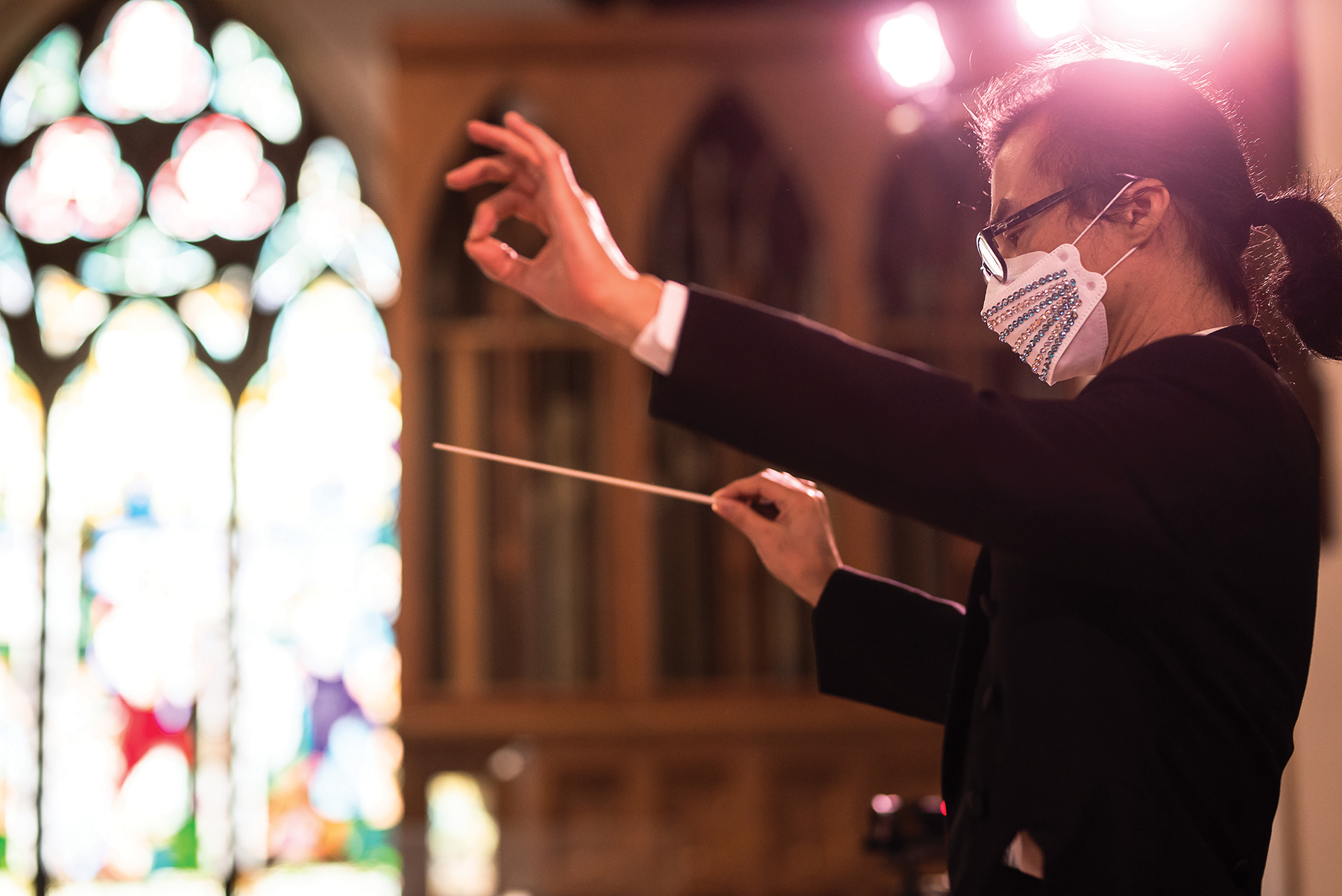
In Owen Sound, the Georgian Bay Symphony (GBS), founded in 1972 by a group of dedicated area musicians, has risen to the COVID challenge and the lockdown of its 761-seat venue, the OSCVI Community Auditorium.
Last spring, the symphony used Facebook Live to broadcast piano and violin pieces performed by University of Western Ontario students and young violinists practicing for the Kiwanis Music Festival. Digital concerts via YouTube were also staged.
“They were a challenge,” says general manager David Adair. “Over 20 musicians recorded themselves individually playing their parts of the score – shorter pieces and quartets – with a ‘click track’ electronic tempo, similar to a metronome, replacing the conductor. The brass section, following COVID rules, recorded their parts together.”
These events were so successful, they gave the GBS confidence to mount an entire season of virtual concerts, Adair adds. The symphony has a complete six-concert series planned until May 2021 – one of only a few symphonies in Ontario doing this. In November, string players were grouped together for their pieces and recorded with a guest pianist. A Christmas concert will be streamed on December 19, and maybe a Christmas Karaoke sing-along event.
“With virtual performances, you have to do things differently. Rather than just showing a bunch of people playing, we have added video of local waterfalls, nature, and even sheep grazing as a backdrop, along with an interview,” says Adair, reporting that most GBS subscribers have signed up for the season. “Arts organizations need to be creative and adapt,” he adds. “We’ve risen to the challenge with new skills to keep making music happen.”
Violinist Victoria Yeh, a former guest concertmaster with the GBS, is working as the audio engineer on the symphony’s virtual concert series.
She has also launched her own six-month long virtual concert and adventure series titled ‘Travel by Sound,’ filmed at theatres across Grey, Bruce and Simcoe counties, featuring six bands and over 20 musicians. Local concerts include ‘Winter Classics’ at Meaford Hall (December 20) and the Freeman Brothers in Owen Sound (January 17).
“We’re heading into a long winter,” says Yeh. “This is my way of helping my fellow artists and my community come together and have something to look forward to.”
Like many businesses and organizations in Southern Georgian Bay, arts and culture venues, organizations and artists themselves have been dealt a serious blow as the result of COVID-19 restrictions. Yet now more than ever, we need arts and culture for our mental and spiritual wellbeing, as well as the long-term economic vitality of our region.
The Institute of Southern Georgian Bay, a not-for-profit community ‘Think and Do Tank,’ recently held a virtual discussion titled, ‘Mapping Our Road to Recovery’.
“Our audiences came up with 10 things they would like to see,” said Institute chair Rosalyn Morrison. The top three were: collaborating on weaving together a complete inventory of arts and culture organizations, venues and artists; creating a network of arts and culture leaders and bringing them into a collaborative platform; branding regional arts and culture. It’s a work in progress, but it’s the beginning of a local strategy that highlights the positive impact that arts and culture have on our lives.”
She cites a 2016 Statistics Canada report revealing that arts and culture represent $27.5 billion, or 3.7 per cent of Ontario’s Gross Domestic Product. “That’s larger than all major industries combined. Because we have an integrated economy, we need to understand the interconnections. We need to think strategically and invest in the arts and culture sector, which is inspired by creativity and important for the next generation.
“COVID-19 has revealed that arts and culture are critical to our day-to-day creativity and wellbeing – not just for some people who think they are important, but for all of us. The data shows that we should be investing in this sector as much, if not more than, in traditional sectors receiving recovery money.”
For many arts-related organizations and businesses, the pandemic restrictions have provided time to think, organize and pivot by embracing technologies in order to maintain audiences, stay relevant and plan for the future during these challenging times. But as cultural institutions struggle to stay solvent during this crisis, they’re in dire need of community support.
We urge you to do your part to keep arts and culture alive in Southern Georgian Bay, by participating in virtual events (and live events when possible), joining as members, and donating funds if you can. It’s the surest way forward for them, for us, for artists, and for the health, wellbeing and creative strength of our community. ❧
How You Can Help
To help arts & culture organizations survive the pandemic restrictions and resulting economic impact, it’s more important than ever to make a donation, become a member, buy gift certificates, and buy tickets for virtual events as well as future live events even if they may be cancelled.
To lend your support and find the latest updates, please visit the websites below and do what you can to ensure that our arts community can weather the storm and come back as vibrant as ever once we’re all able to gather again.
Since we’re stuck indoors most of the time and travel seems unlikely this winter, you might also consider buying the work of the local artists and artisans to brighten up your home (or home office). These creative people are self-employed and rely on the income from selling their artwork. Most of the local galleries that carry their work are independent businesses that are also struggling.
Blue Mountain Foundation for the Arts
bmfa.on.ca
Brookside Music Association
brooksidemusic.com
Bruce Peninsula Society of Artists
brucepeninsulaart.ca
Collingwood Arts, Culture Entertainment Group (CACE)
collingwoodarts.com
Collingwood Museum
collingwood.ca/museum
Collingwood Summer Music Festival
collingwoodfestival.com
Festival of the Sound
festivalofthesound.ca
Georgian Bay Symphony
georgianbaysymphony.ca
Huronia Symphony Orchestra
huroniasymphony.ca
The Institute of Southern Georgian Bay
tisgb.com
Lyrica Chamber Choir
lyricachoir.ca
Marsh Street Centre
marshstreetcentre.com
Meaford Hall
meafordhall.ca
Meaford International Film Festival
meafordfilmfest.ca
Midland Cultural Centre
midlandculturalcentre.com
Simcoe Street Theatre, Creative Simcoe Street, The Tremont
creativesimcoestreet.ca
Theatre Collingwood
theatrecollingwood.ca
Travel By Sound
travelbysound.com
Wasaga Society for the Arts
wasagasocietyforthearts.ca






